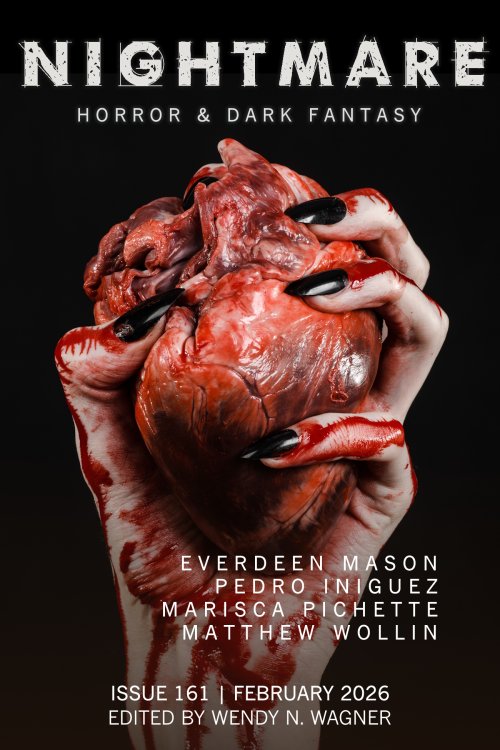Editorial
Editorial: February 2022
Welcome to Nightmare’s 113th issue! I can’t believe I’ve been writing these editorials for an entire year now. Looking back over the past twelve issues, I’m so proud of our staff and our amazing writers. What a terrific bunch! I can’t wait to see what we’ll put together for you in our next orbit around the sun.








